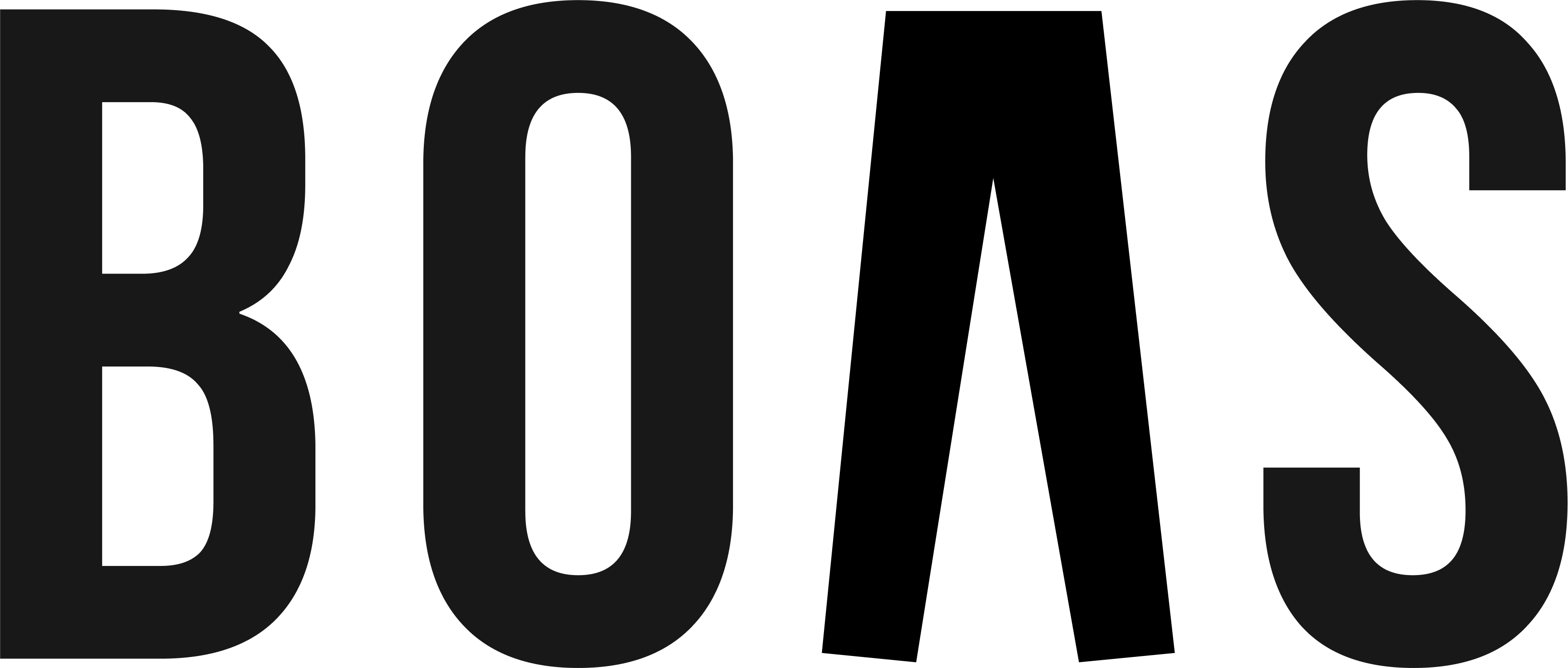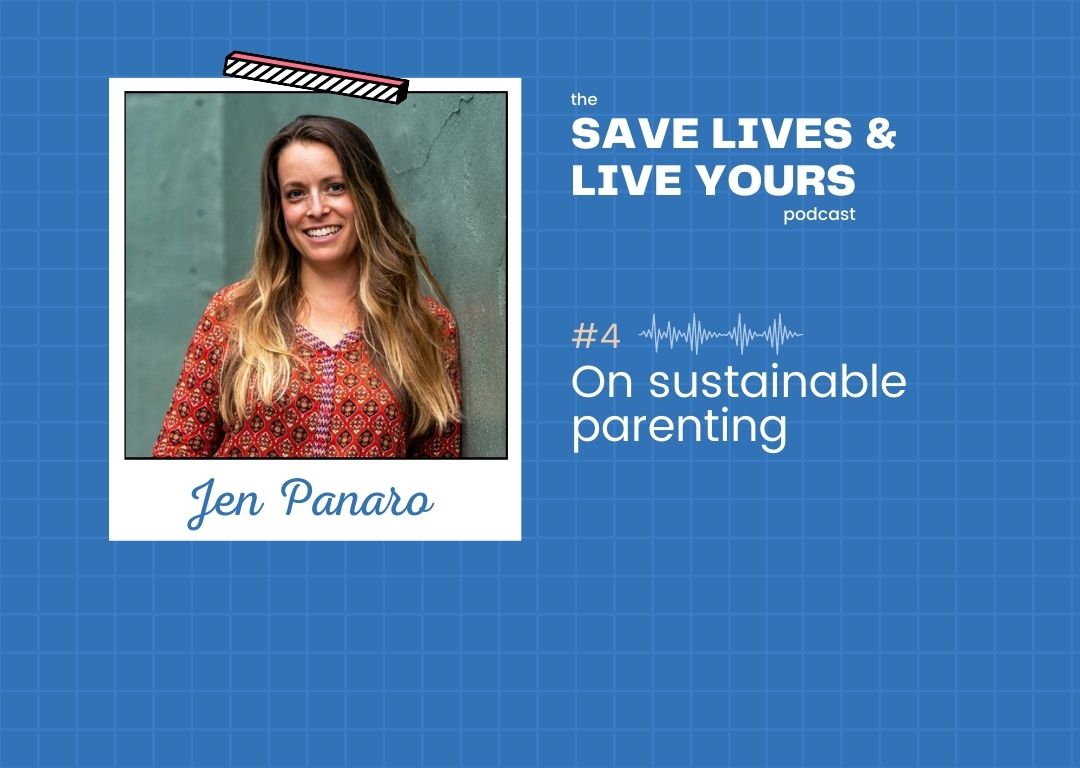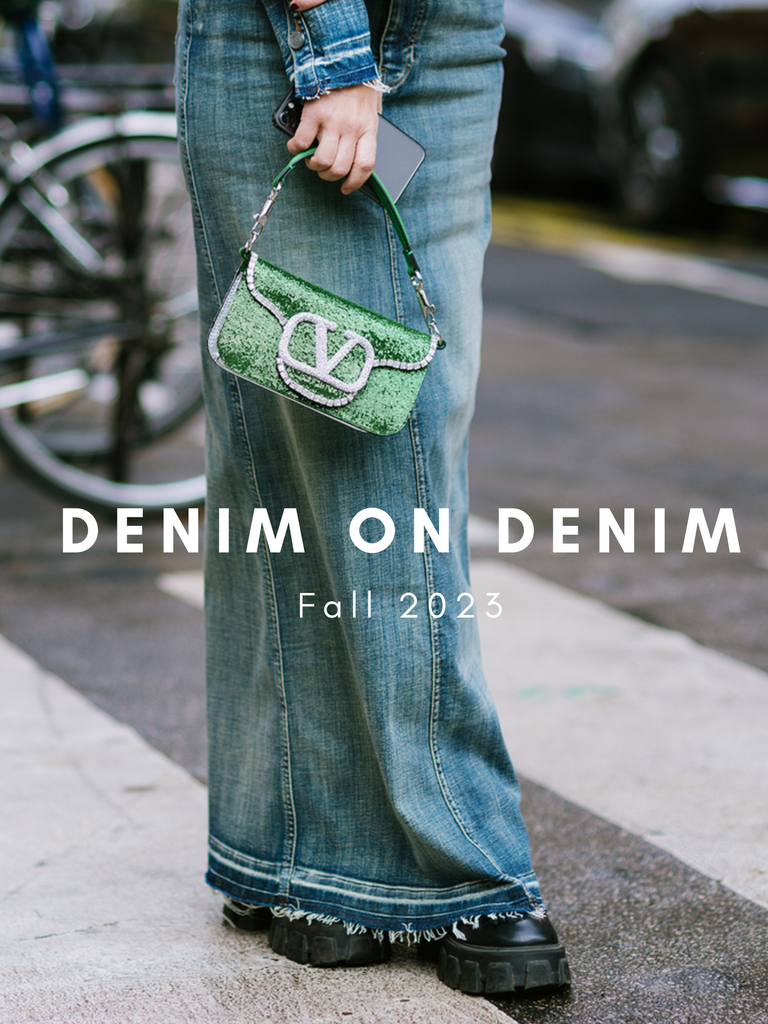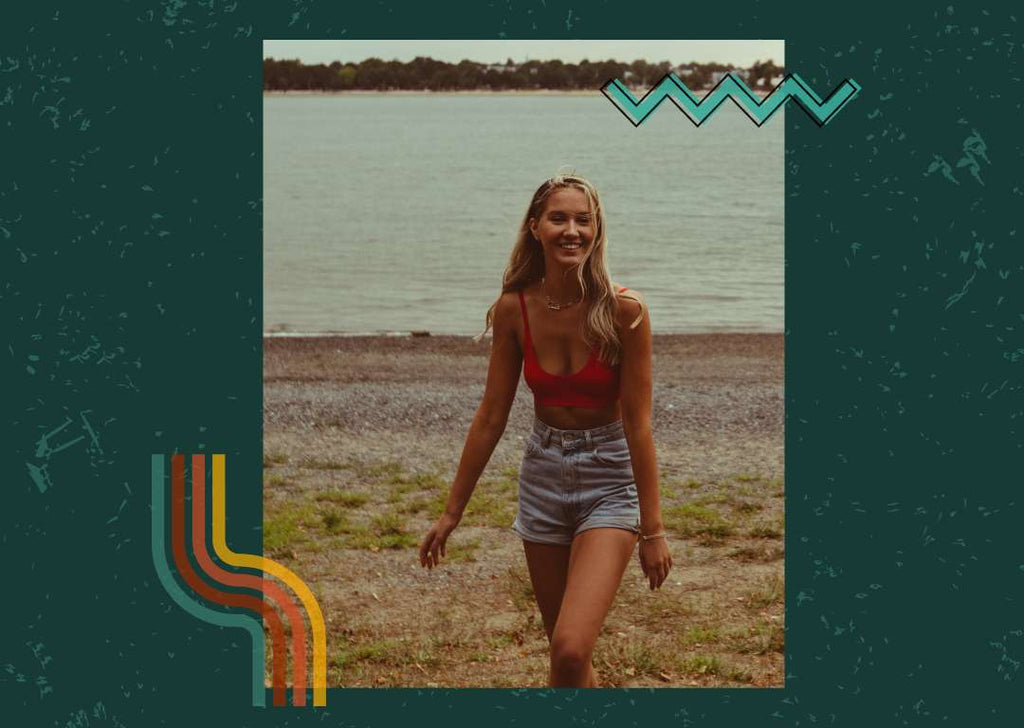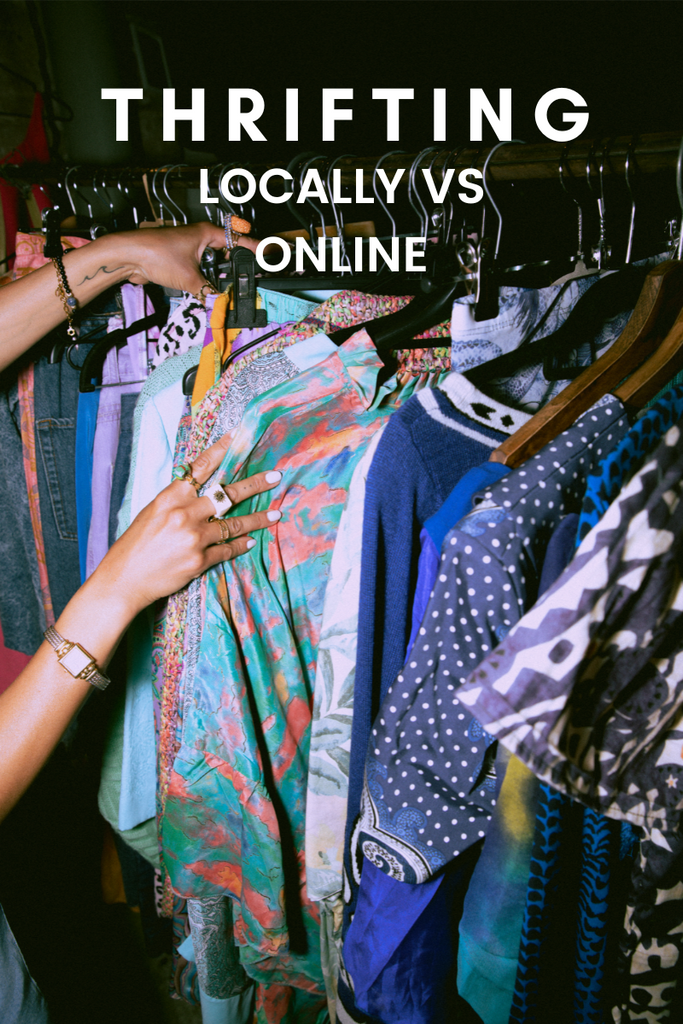Episode transcript
Su (from BOAS):
Hello everyone and welcome to the Boas podcast. Today we're joined by Jen Panero who is the founder and editor-in-chief of Honestly Modern, a published author of How to Raise a Global Citizen and a compost and Sustainable Living advocate as well as a mother of two. Hello Jen, thank you so much for being here.
Jen Panaro:
Hi, thanks for having me.
Su (from BOAS):
We want to know about your sustainability journey. When did you realize you wanted to live sustainably?
Jen Panaro:
Sure. So it kind of started back in it was probably around 2015. I had a little tiny, I guess you could call it a fashion blog, even though maybe I'm not that fashionable. So I had a blog and I started getting interested in secondhand style. So I would pop into thrift stores and not really curious about what I could find there. That was secondhand. It was more affordable. I enjoyed the thrill, I guess, of finding kind of a diamond in the rock. And as I got more into secondhand style and drifting, I really started thinking about sustainability more broadly in my lifestyle or in my life. So it branched out. So sustainability branched out into thinking about the kitchen and the bathroom and other elements of my life as well. And then it kind of grew from there just through curiosity and learning myself.
Su (from BOAS):
Okay, that's super interesting. So your sustainability journey started through sustainable clothing and shopping for sustainable clothing and it evolved into sort of a lifestyle for you. And when you remember at that time, do you remember some initial obstacles that you had to overcome when switching into a sustainable lifestyle?
Jen Panaro:
Yeah, definitely, I think there are a lot of obstacles. So for me, I didn't come from a background of thinking about really sustainability or environmentalism. I didn't have any formal education. So there was a lot of kind of research or looking for alternative options and some of it was just time, right, taking that time to educate myself or find new options. And then the other obstacle that I came about was a lot of the solutions that I was finding at the time worked really well for adults but didn't always apply to families and especially to children that well. And so at that time, that was when I sort of shifted my blog into Sustainable Living for families, kind of feeling like I was looking for this resource to get more information on how do I do this sort of sustainable living thing with kids and I wasn't finding as much as I would like. So I decided to create the resource myself and have been building it over the years to what it is now, which is honestly modern. So time was an obstacle. There could definitely be a financial obstacle depending on sort of what element it is.
Jen Panaro:
I think in some cases sustainable Living can be more affordable and in some cases it's more expensive. So depend on kind of like what road I went down. And then lastly, I think that at least where I live, a lot of elements of sustainable living are kind of against the status quo or I sort of feel like you're swimming upstream a little bit. It's a little bit different than what everyone else is doing. So there's always kind of that element of not just taking the easiest path all the time or not just doing what everyone else is doing and being a little bit different that you kind of have to endure. I suppose some of them are still there today and some of them are kind of behind you as you get a little bit more comfortable in the lifestyle.
Boas Team Member:
And so you have built this whole online community of people who either live similarly or want to live similarly to that kind of lifestyle. Was that something that was I mean, you just mentioned that it was a bit difficult in the beginning, but now is it something that's well-received within your community or what kind of response do you get to people who maybe want to live like that or don't really know how to?
Jen Panaro:
Sure, it's a really mixed response. So there are some people who are really excited to find someone else who's kind of doing the same thing, has the same interests. At one point I had decided that I have a particular interest in composting and so I had decided to start a local curbside composting business called Wastewell. And so in that particular community aspect that was very well received, I think people were really happy to have someone helping them with composting when they weren't able or interested in doing it themselves. So that was really well received. I think from the lifestyle perspective, it's not that it's not well received. I think some people are just a little confused or surprised sometimes. They're not always sure. What does that mean? That sounds kind of hard. I don't really know. Is your life different? How do you do that? So I would say it's not a negative response. People are usually curious, they're usually interested, they're definitely supportive. But like I said, I guess sometimes people are a little confused or unsure of how to relate to it.
Su (from BOAS):
So we mentioned, in the beginning, that do you have two children.
Jen Panaro:
Yes, I do.
Su (from BOAS):
How old are they?
Jen Panaro:
They're eight and ten. Two boys.
Su (from BOAS):
And did your sustainability journey, like you said, begin before they were born?
Jen Panaro:
It actually started after. So they were probably I mean, there were babies around the time that I started getting into learning about, learning more about it and really getting curious in terms of like the sustainable living component. So for them, it's been part of their lives since they were really young. They certainly know it's an important part of our lives. Although I would say they definitely know it's different than some of their friends. So sometimes they will say things like this is so weird that we have to compost, but none of my friends do this. And then sometimes it's just second nature for them. This is just how it is at our house, and that's fine.
Su (from BOAS):
Does it feel like, since becoming a parent, that there was a shift where you wanted to think a little bit more about the impact that you have on the world, or was that something that you were thinking about before?
Jen Panaro:
For me, I think a lot of people have that experience where once they become apparent, it shifts their perspective. I don't think that was the driving force for me. It was probably more a just general curiosity and interest. There's definitely an underlying driving motivation in terms of preserving kind of the Earth for the future generations that is enhanced by having children. For me, of course, now that I have my own kids, I want to make sure that the place where they live is going to be just as wonderful as where we live now and that it's not completely deteriorated by them. So I would say it wasn't the thing that made me sort of turn that corner, but it's definitely a continuous source of motivation that drives me today.
Su (from BOAS):
Now I want to talk briefly about the book that you're a part of that you helped publish and write, how to Write a Global Citizen. How did that happen? What was sort of the journey?
Jen Panaro:
Yeah, it's kind of a funny story. So I got an email from the senior editor at the publishing company that basically said, hey, we'd love to have you contribute to this book. And the first email that I got from him, I think I deleted it. Or I was like, this sounds not even real. Somebody can't possibly be asking me to do this. Certainly I'm not qualified. So I didn't respond. I don't think I got it maybe around the holidays, and I was busy with some other things. And fortunately for me, he was kind enough to reach back out a second time and say, hey, I sent you this email. We'd love to have you as a contributor. And at that point, I said, wow, this is really great. I would love to do that. So they approached me and asked me to write several pieces for the book, which was great. And then as kind of a side note, I was having a conversation with a friend of mine, I don't know, maybe a month into the project or something, and I had told her, like, hey, I'm contributing to this book. And she said, no way, me too.
So they actually reached out to her as well. So she's another friend that's a contributing author as well. And so that was fun for us to sort of bounce ideas off each other and work on that together.
Su (from BOAS):
And what is the book about? I mean, aside from what the title implies, I think it seems like it's about sustainable parenting. Is it sort of a book for people who are parents or is it sort of everyone who's thinking about sort of the long term effects of I.
Jen Panaro:
Mean, it could be for everyone. It's definitely geared toward parents. It's written by parents about sort of little elements of how each of us are raising our children to be more conscious citizens of a global community. So it's not just about environmentalism. There are elements of being bilingual or being exposed to different cultures as well as environmental elements in terms of being a good steward to the planet and things like that. So there are several different sections that cover kind of different elements of life from food and travel and education and things like that. And I wouldn't say it's like a detailed step by step handbook. It's more of your seven or eight parents who are kind of sharing their ideas of how what does this look like in our life in a way that is, I think, accessible and approachable and easy to read.
Su (from BOAS):
Amazing.
Jen Panaro:
And so if it's not too difficult of a question because I'm really just curious for somebody who hasn't read the book, if there was sort of one very surprising hack or one thing that parents do that they maybe overlook when trying to become sustainable, what would you say? Because I'm sure you spend a lot of time now researching in terms of.
Su (from BOAS):
Sustainable of a living. I think one of the easiest things that parents can do is just stop buying so much stuff. So kind of like step back and before we're diving into do we need this new thing? Do we need this replacement, do we need more clothes, do we need whatever it is kind of ask the question like do I really actually need this? And I think that I know it's not a hack but it saves money, it saves time because they're not running to the store to buy new things or jumping online to buy new things. So that's what I think is like the first step is just being patient, stepping back and before you buy new stuff, just reconsider like do I really need this? And maybe I have something else that can already suffice.
Jen Panaro:
I think that's very great advice. I mean I think a lot of us are geared towards sort of spending based on desire and not on need. And it's very very hard actually when you begin to do that, to stop doing that because you're so you're so used to doing that and you don't immediately stop wanting things. But I think in personal experience it just gets better over time. You stop wanting things, you stop sort of looking out for new things to want and you kind of focus on what you already have and how you can make the most out of it.
Su (from BOAS):
I definitely agree.
Jen Panaro:
Yes, it's not easy. It's a lifestyle change, it's a mindset change really. But I can tell you, like you said, it definitely gets easier over time. And I mean the way that I used to feel when I walked into a mall and I thought oh my gosh, I want to go check out all these stores and I walk into a mall today and I just look around and I'm thinking like this does nothing for me. It's just a shift in habit I guess and a shift in mindset.
Su (from BOAS):
We as a brand are thinking about sort of because like mothers and parenthood is a great market for sustainability and we really believe in the cause. But there is also this really great opportunity for people who are sort of my age or even a bit younger who want to live more sustainably. And as you said in the beginning, the first couple of steps is always very easy to do. If you want to just buy secondhand already you're not sort of buying new things that are being created but sort of repurposing things that are just out there. And I know you've had a whole journey about this, and you have these style guides on your social media pages. So if you could give me sort of a brief explanation for this. What are the benefits of shopping secondhand?
Jen Panaro:
I think there's some sort of community and environmental benefits that are maybe more obvious, right? We're not creating, we're not using new resources. We're not generating as much waste. We're diverting clothes that might have ended up in a landfill and are not going to end up in a landfill. Our landfills, and they're overflowing. We don't have space to put this stuff in anymore. So those are the bigger benefits. I think from a more personal perspective, generally, you're saving money. I mean, things are less expensive when you buy them secondhand and so that's the financial aspect is the first element. I really like the sort of thrill of the hunt. I think there are some interesting feelings when you can go and you can find something that's really unique and you're not thinking like, oh, this is the same shirt that everyone else grabbed off the shelf today, so you can find some really cool things. I mean, I think when I first started shopping Secondhand, I remember finding a DBS like Diane Von Pearsenberg dress for $17 that still had the tag on it and that was so exciting and so cool. I think I might still have the dress.
So you find some really interesting things for really great price points. There's a lot of unique stuff out there that is different than kind of the standard things that you're finding on most shelf at this point. So I think interest, saving money, those are probably two of the most immediate benefits that someone would find personally and.
Su (from BOAS):
Aside from shopping secondhand, do you ever think about selling? Is that something you do?
Jen Panaro:
I probably don't do it as much as I could or as much as some people do. I've gotten into like secondhand or the resale markets online as much as some other people have, so I'm definitely not an expert in that area. I tend to give my clothes to my sisters or give them away on buy nothing before I would sell them piece by piece. Sometimes I'll send them in bulk to resell online stores because it's just a little bit easier for me. So there's a lot of different avenues, I guess, that I take. And I don't buy that many clothes anymore, so honestly, I don't have that many clothes to resell all the time, so my sister seemed to like them.
Su (from BOAS):
So from what I understand, you like to shop sort of in the in person secondhand stores as opposed to online.
Jen Panaro:
I do a mix of both, actually. So I will sometimes go into thrift stores when I have time. There are certain things I like to buy in person from thrift stores, but there are also things that I'll buy online too. So I don't necessarily sell online that often, but I do buy and I actually think online thrift stores are sometimes more convenient. I think they're a little bit easier. They have a lot of filters built into them which are super helpful. So I think it's a little bit overwhelming sometimes to go to an online resale shop and just browse. There's just too much to choose from. But if I know what I'm looking for and I can filter down to just my size and just the style that I'm looking for, the type of item, maybe a few specific brands that I know I meant, like, then you can narrow down pretty quickly what you want and can find some pretty good stuff. So I do buy second hand clothes online pretty regularly, probably more than I do in stores. The things that I tend to buy from stores are more like home goods or kitchen things or more kind of like tangible pieces.
Su (from BOAS):
Is there something you look for specifically when shopping secondhand, like quality or maybe sort of brands in terms of shopping.
Jen Panaro:
For clothing secondhand, I can usually scan through the shelves or the racks pretty quickly. I often will, like, feel the fabric and a lot of fabrics, I just don't like the way they can kind of tell that they feel cheap and know that they're not going to last that long. The other thing that I'll do sometimes is flip it over and look at the seams. And you can usually tell from the seams how well a product is made. And so I'll usually look at the seams to see if it's made. I mean, I generally don't buy even if it's cheap. And secondhand, if it's a poorly made product that's not going to last long in my closet, I usually don't buy it because I don't want to have to replace it after I wear it to a three and I just don't make the time to go shopping. But so, yeah, so I'd say the feel of the fabric, the quality of the seams, and then I do generally look at the brand and we'll make some decisions about is it a quality brand that I think is going to last and that it's worth spending this kind of money on.
Su (from BOAS):
Amazing. Thank you so much for all of your secondhand shopping tips. I want to move on to the three organizations that you're part of.
Su (from BOAS):
So we briefly talked about WasteWell, which is super interesting. Could you give us sort of an overview of what that is?
Jen Panaro:
Yeah, sure. So Waste is a local curbside composting company that I started back in the fall of 2020. I started it a little bit on a whim. Like, I had thought about it for a while and I ended up meeting a friend who ran a similar company in a different location. And I finally thought, if she's already doing it and I have questions I can just ask her. So I started providing curbside composting basically pickup services. So I pick up people's food scraps and then I drop them off at a farm where at the farm they do all of the processing for the compost at their compost facility. So I don't do any of the processing myself. I'm really just a pickup and drop off service through Wastewell. And so that actually has been really well received in the community. It has been in local which was great and it was something that I enjoyed starting and quite honestly I actually just passed it along to a friend about actually at the beginning of January. So it's not something that I own anymore. I felt like I was stretched pretty thin between my family commitments and my professional commitments and this was the thing that felt
like it made the most sense to pass along to someone else.
Jen Panaro:
So I gave it to a friend who had experience in the industry and I knew that they had the ability and the interest to grow it and do some really cool things. I was pretty pumped and they were too that kind of like passed that along and they were able to start the next chapter of Waste Twelve. So it's still a curbside composting company in our local community here, helping people bring one more element of sustainability into their lives and I'm no longer running it but it was really cool. I really was able to start it and get it going, create the momentum in the community and then let someone else kind of grow that to the next level.
Su (from BOAS):
That's amazing. But you've created something good in the world and then passed along the toy. So you are still actively part of then honestly modern and raising global kids?
Jen Panaro:
That's correct. Yeah. So honestly Modern is my main endeavor. That is a website for sustainable living for modern families. And so the idea there is to kind of be a landing place for people who are interested in more sustainable living and kind of at the beginning or maybe the intermediate place in their journey and looking for guidance of kind of what to do next, where to start or what to do next. And so it is hopefully a landing place where someone who says, you know, hey, I've heard about this climate change thing and I kind of want to do something, it feels a little overwhelming. I'm not sure where to start. Hopefully honestly modern can be a place where they can land, find some ideas and find at least one or two places that really resonate with them in terms of places where they can start and feel comfortable incorporating some elements of sort of ecofriendly living into their everyday lives.
Su (from BOAS):
And what about raising global citizens?
Jen Panaro:
This I cofounded with a friend of mine. She was actually the one who was the other author on that book how to raise a global citizen, which has a similar name. Just by coincidence, they're not related to each other at all. So she and I wanted to create she is a teacher by education. She used to be a high school science teacher. And we wanted to start creating some workbooks and other materials that parents and teachers and caregivers could easily bring into their homes to start teaching their kids about elements of sustainable living. And so we built all of our resources. Like I said, we have some workbooks, some are free, some are paid. We have everything from science experiments and book lists and other types of educational materials that families and teachers can bring into their learning spaces and help kids start to think about being a more conscious citizen of the world. And all of our workbooks and all of our content is built around the United Nations Sustainable Development Goals. So they have 17 of sustainable development goals that are related to everything from poverty to clean water, to clean energy, to partnerships between groups to sort of help bring everyone up into more sustainable living and a sort of healthier, happier planet, I guess.
Jen Panaro:
And so, yeah, all of our content that we build is based around those 17 goals in some way. And hopefully we can help teachers and parents really more seamlessly bring sustainable living and that educational element into their spaces because it's not something that's always easily incorporated into sort of standard curriculum.
Su (from BOAS):
Are there any specific charities or causes that you feel very passionate about that you think needs immediate attention from people in our generation?
Jen Panaro:
I think the earth is dying. I guess that's a little extreme. But there are certainly things that people can be doing to help our planet in terms of just making it a healthier place for everybody. A couple of things that I am particularly passionate about are, from an environmental perspective, soil health. I think I don't have a particular charity or organization I think that I would encourage people to go to. But I think soil health has a lot more benefits than people realize. Something that's really been super interesting to me, like the immense biodiversity in our soil. How so? Healthy soil can create cleaner water and sequester carbon and create better food and it's tied to so many really great outcomes. So if we take care of our soil, I think it can have a really big impact. And then in my local community, I always have a soft spot for the food banks and really the hunger that's in communities and doing what I can to lessen that a little bit. And then lastly, the local libraries. I'm a huge advocate for local libraries. I sit on the board of trustees for my local library and do all the treasury work as a volunteer activity.
And I'm always just sort of shouting from the rooftops about how local libraries are really important part of our community and can offer so many benefits in so many ways. So go support your local library. That's my shame.
Su (from BOAS):
Wonderful. And that will lead me perfectly to our next question because we know that you're an avid reader and you always advocate new books that you find on the topic. If you had to give a couple of recommendations to parents and young adults who want to transition into living more sustainable lives, what books would come to your mind as being very fundamental?
Jen Panaro:
Yes, I am an avid reader. I read a lot and I love reading. I do have a couple of books that I can recommend for you guys. First of all, I'll tell you how to raise a Global Citizen. Right? I would be a terrible author if I didn't recommend the books that I'm sure we did do. A couple of other books that I particularly like. There is a book called All We Can Say. It's an anthology. It has a lot of really interesting stories from women that bring in a lot of different perspectives on environmentalism and sort of things we can do for the future. Another book that I really like is called Saving US by Catherine Hajo. She is a climate scientist and she really talks about the power of conversation and talking about issues with people who maybe don't always agree with you and how valuable those conversations can be and how to have those conversations. I know at least I can't speak for everybody, but I know in the United States there seems to be increasing division in communities and people with different opinions just aren't even talking to each other anymore or as much as they used to. So I really like that book from that perspective. And then the last book that I will give a shout out to is called Hot Mess. And it is a book by not winning. And he's another climate scientist and he talks about he's very funny. He's a comedian. And he mixes the science with some lifestyle information, with some comedy and jokes and sort of brings it all together. So I like his book because it's relatable. You can sort of bring some of the information home in terms of like, what can I do about this? And it's also a pretty light read. Those are some of the ones that I would recommend.
Su (from BOAS):
Thank you so much. They're wonderful recommendations. And thank you so much for your time and for meeting with us and for being on our podcast. We are very happy that you are out in the world doing what you're doing. And thank you for all of it.
Jen Panaro:
Thanks so much. Thanks for having me.
BOAS' Blog
Newsletter
We strive to inspire with our emails, so we don't send many and they're meant to make you buy less and buy better, so no sales emails.
